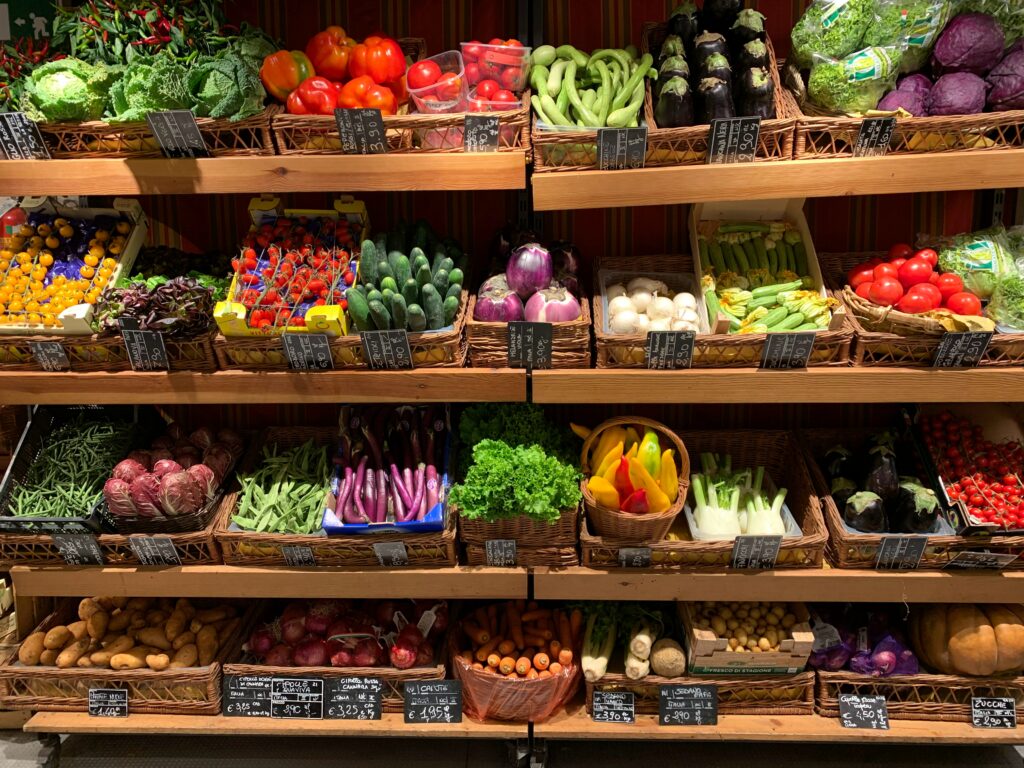We today live in a world where so many lifestyle diseases and awareness about healthy living have really changed our food choices. Like never before, buyers checking in at stores will not only limit their choices to how much an item costs or its aesthetics. Instead, we have become more particular on looking at production to know that it meets ethical standards and preserves ecological integrity. No wonder the talk about the limits of acceptable genetically modified foods keep raging. The situation isn’t any different in Denmark where customers consciously buy organic foods on the shelves without much regard to how much extra kroners they have to fork out for it. It is surely an era of ecological awareness and Økologisk is the buzz word in Denmark.
The Danish society is one highly made up of citizen scientists where even the lay people really understand what it takes to be healthy. Healthy in this sense not only mean what we eat but also how it affects the environment and nature. With diseases like cancer, congenital conditions, and cardiovascular maladies, we have to really take our lifestyle seriously and Denmark already takes the lead.
Denmark leaning towards Organic foods (Økologisk)
Denmark continues to take the lead as the rest of the world embraces organic living, a trend that we hope is here to stay. With its long history of eco-friendly decisions and forward-thinking food industry, the demand for organic food has increased over the past few decades. In fact, when the Danish Government introduced its initial Food Strategy in the 1990s, sustainability remained at the centre of the 2030 vision. Such strategy also focused on creating an innovative, sustainable food chain. Consumers get encouraged to make more knowledgeable and environmentally friendly food choices.
In Danish supermarkets, many food items are identified with a red label, “Økologisk”, which means “organic,” The abbreviation for this label was first used in Denmark in 1990.T labels also implies that the food you has been approved by the Danish government regulations for organic produce. Talking about the organic, it simply means farming without fertilizer.
Where can I get Organic Food in Denmark?
Danes are renowned for their love of the great outdoors and sustainable living, the latter of which has placed them at the forefront of the global eco-friendly movement. Currently, the Danish food producers are among the world’s top innovators in organic and sustainable farming, and nature-conscious food production strategies. When it comes to the food choices, Danes are not far behind, with their food choices having an impact both on what they eat and on the policies of the government.

In 2020, the retail food market for organic products contributed roughly 13% of the total market. Undoubtedly, this made the Danish organic market the largest in the world in terms of volume. Getting organic food in Denmark has never been a difficult task. If you would love to have an authentic experience of the organic food products here, you simply need to visit your nearest supermarkets. Here, most retailers out there sell organic foods that include eggs, oats, wheat flour, carrots, and bananas.
The list of organics in Denmark goes l only these! You are also likely to get fresh organic vegetables that can meet your nutritional demand. These products form the top organic goods in demand. Interestingly, half of the milk served in Danish schools is organic, and one in three liters of milk purchased by Danish consumers is further organic. Organic food can also be served in a number of places such as in Denmark’s canteens, and other public sector workplaces. It does not take a huge hustle to get the category of organic product that you want. As such, there should never be a problem in getting the appropriate place to buy your delicious organic food.
Is Organic Food Safe and Healthy for you?
People opt to purchase organic food for a variety of reasons. Customers might believe, for instance, that organic farming is better for the environment and animal welfare. Ideally, when you eat organic food, you will be consuming fewer additives and pesticide residues. Remember, organic food is because of organic farming, which implies food production without fertilizers. Customers might decide to purchase organic food because they think it is healthier and more nutrient-dense than non-organic food.
So are organic foods good and safe for your health. Yes! There are many advantages to eating organic food. If you care about the environment and want to set a personal standard for a clean environment, this may be the best option for you. Food production in this way looks into the future with a focus on enhancing the fertility and health of the soil.
In order to maintain ecological balance, organic farming also promotes wildlife, biodiversity, and the activity of natural predators. A majority of people claim that eating organic food may lower the risk of allergies and obesity and other related ailments. However, this kind of proposition has insufficient scientific backing, as it is largely undefined due to the numerous mystifying factors. Nevertheless, some intriguing findings indicate that organic dairy may lower the occurrence of certain skin conditions.
Take Away about the Organic foods in Denmark
It is by no doubt that Danish food enjoys high consumer confidence across the globe. This is largely due to the extensive regulations and guidelines that regulate every component of organic food production in Denmark by the government. Many organic farmers have set their sights on winning the world championship for organic farming.
Danish agriculture focuses on maintaining a living and fertile soil, minimizing the effects of their production on the environment, improving resource efficiency, and ensuring the finest well‐being for the animals. As the consumers, you can also remain sure that consumption of the organic food will be beneficial to your health and will not impose any adverse health effects on you.
